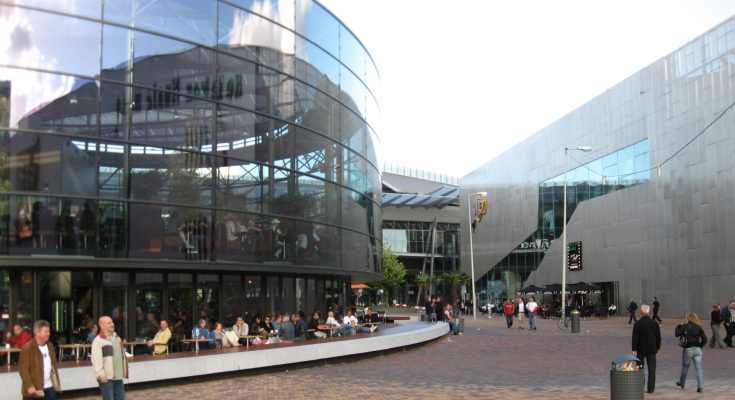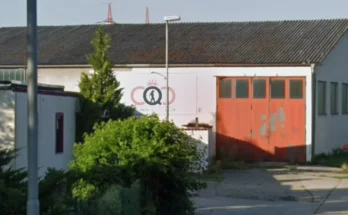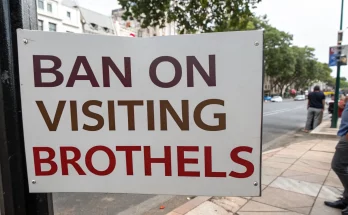Amsterdam, a city renowned for its liberal attitudes and vibrant nightlife, has recently become embroiled in a heated debate surrounding plans for a new erotic center. Local authorities have proposed the creation of an “erotic city” in the heart of Amsterdam, aiming to consolidate the city’s sex industry, reduce crime and improve the overall wellbeing of sex workers.
The proposed center, dubbed the “Erotic City,” will be built in Amsterdam’s Zuidoost district, a region undergoing significant urban development. The area has been strategically chosen for its accessibility, space, and potential for growth. The initiative is part of the city’s ongoing effort to combat issues related to human trafficking, drug use, and over-tourism in the city center.
The Erotic City will feature various facilities catering to adult entertainment, including strip clubs, sex shops, and brothels. In addition, the center will house support services for sex workers, such as social workers, medical professionals, and legal advisors. The local government believes that by centralizing these services, they can improve the lives of sex workers and better regulate the industry.
However, the plans have been met with strong opposition from various stakeholders. Local residents, community groups, and politicians have voiced concerns that the Erotic City will further stigmatize the Zuidoost district, which has struggled with issues of poverty, crime, and social exclusion for decades. Critics argue that the district’s marginalized communities will suffer the most, as the new development may exacerbate existing inequalities.
The relocation might increase property prices
Another point of contention is the potential gentrification of the city center. Some argue that the relocation of the sex industry will make way for more upscale businesses and increase property prices, effectively pushing out low-income residents. Others claim that the proposed center will merely shift problems related to sex tourism and crime from one area to another, without addressing the root causes.
In response to the criticism, proponents of the Erotic City maintain that the project will create jobs and stimulate economic growth in the Zuidoost district. They argue that by consolidating the sex industry, the city will be able to better monitor and regulate its activities, ultimately leading to a safer and more controlled environment for both sex workers and clients.
The debate has also sparked a larger conversation about the role of sex work in Dutch society. While the Netherlands is known for its progressive stance on sex work, the industry remains stigmatized and underregulated. The Erotic City project has brought to light questions about the rights and wellbeing of sex workers, as well as the impact of the sex industry on local communities.
Amsterdam’s city council has yet to make a final decision on the Erotic City proposal. In the meantime, the debate rages on, with both supporters and opponents organizing campaigns and rallies to voice their opinions.
In conclusion, the proposed Erotic City in Amsterdam has ignited a passionate debate about the sex industry, gentrification, and the future of the city. While the initiative aims to address problems related to crime, human trafficking, and over-tourism, it has been met with significant opposition from various groups. The project raises important questions about the rights of sex workers and the impact of the industry on local communities. As the city council deliberates on the proposal, the future of Amsterdam’s iconic Red Light District remains uncertain.
Read our previous articles as well
A brothel owner in Stuttgart won a court case against the city. The court ruled that until a decision is made on the permit application, certain requirements of the Prostitution Protection Act do not need to be met. The owner applied for a permit in December 2017, and the dispute centered on the requirements of the Act. The court’s decision allows existing businesses to continue without costly renovations until it’s clear if they’ll receive a permit. The Act requires separate facilities for clients and prostitutes, living areas, and an emergency call system: Brothel owner wins court case against city of Stuttgart
Vienna’s Maxim Wien sex club had a challenging 2022, but managed to stay afloat and thrive. The club experienced both setbacks and successes throughout the year, amidst mixed feelings of worry, enthusiasm, fear, and hope. A short review of the club’s year shows that it has faced hurdles but persevered: All the Things that Happened in Maxim Wien in 2022
Brothel owner Joe Leber has reduced the temperature in his clubs by 2 degrees due to the steep increase in heating costs. The sex industry has been hit hard by local bans, inflation, and the pandemic. Despite this, customer frequency has remained stable during the day, but has decreased at night. Leber aims to create a relaxed atmosphere by offering drinks at affordable prices in one of his clubs, Napoleonhof in Ansfelden: Customers are Still Staying Warm Despite the Colder Brothels



